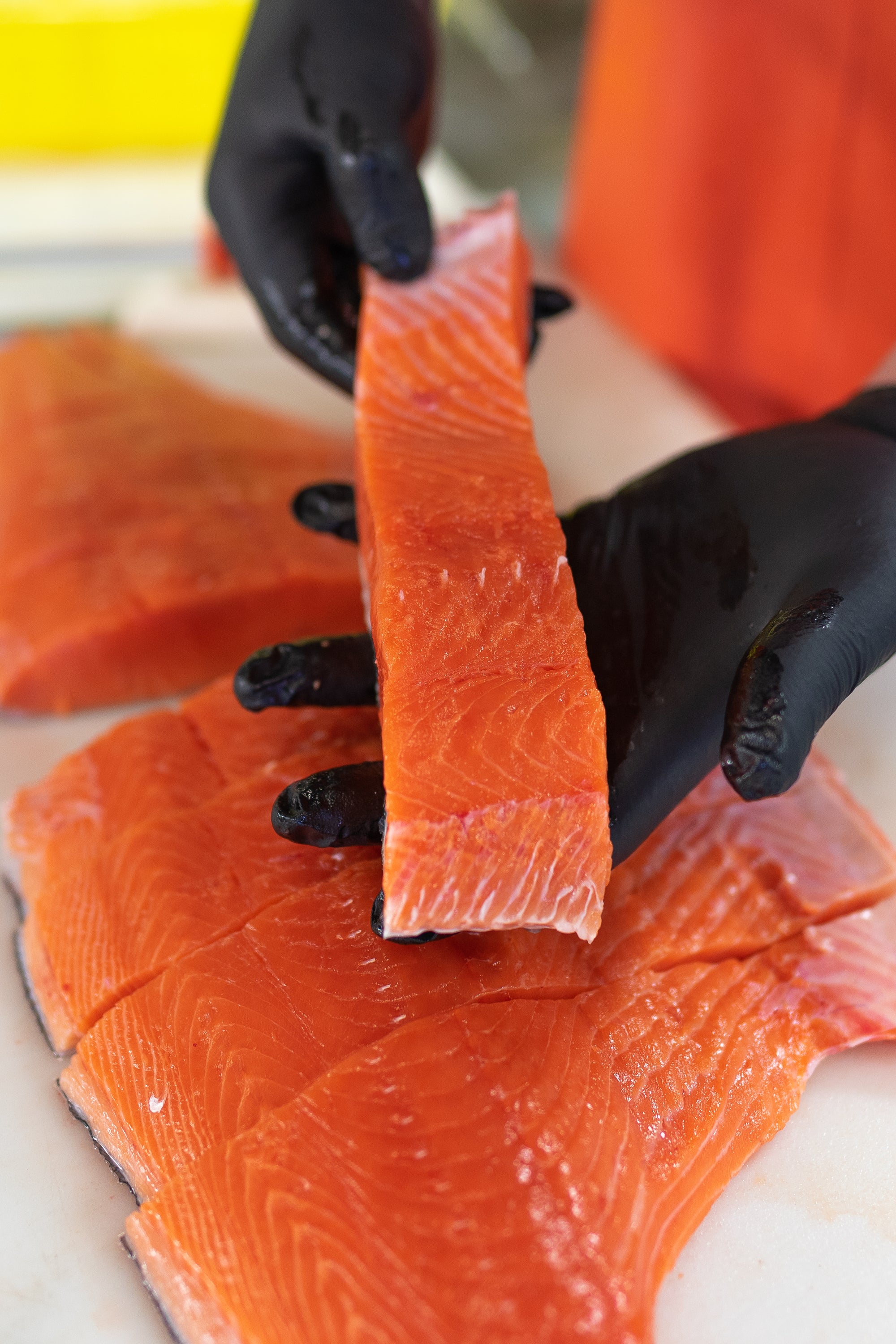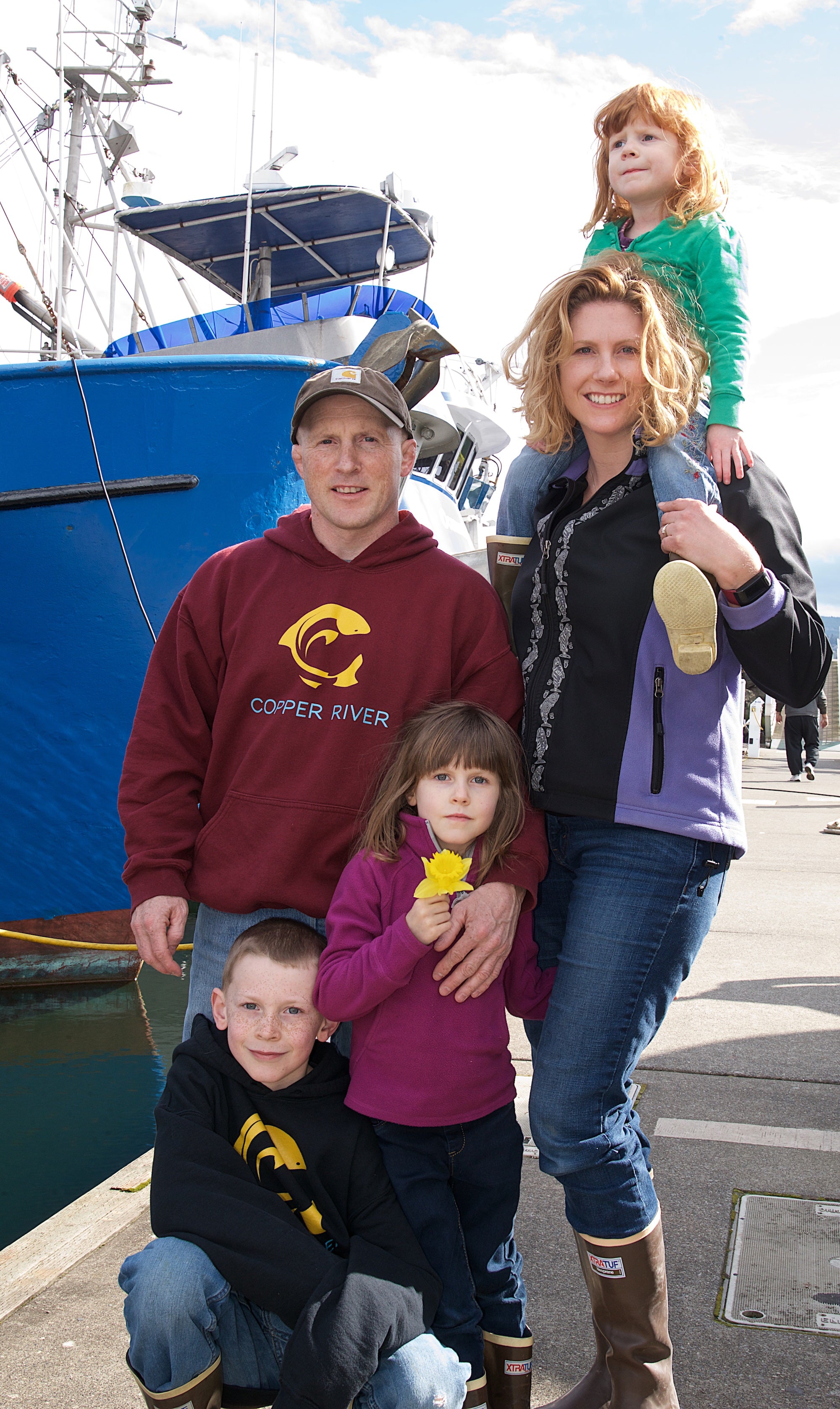One major hurdle people are encountering when they try to eat more fish is that they don’t know which fish to buy. They want to make the right choice, but sometimes all the terminology can get pretty confusing. “Farmed”, “wild”, “frozen”, "fresh”, sometimes they even call it “fresh frozen”. What does it all mean?
-
Farmed fish is just what it sounds like. Fish raised in a controlled environment and fed a controlled diet. While that may sound like a good thing, it comes with some significant problems. The feed can be questionable, overcrowding can lead to disease, and once a disease gets in the fish have to be medicated. Some fish farms are inland, and some contain fish in natural waters in pens. Either way water, fish and waste from fish farms makes its way into rivers, contaminating wild runs. The state of Alaska doesn’t allow any fish farming, so “Alaskan” always means wild when it comes to fish labels.
-
Wild fish is also just what it sounds like. This fish is caught wild in rivers or oceans where it has been eating it’s native diet, and following it’s natural life-cycle which includes migration and spawning. This is important because a fish that is preparing to migrate puts on stores of high Omega 3 fat, making it a very healthy choice for you.
-
Sustainable, what does it mean when it comes to fish? The state of Alaska maintains strict escapement quotas ensuring sufficient fish return to their native spawning grounds before any commercial fishing is allowed to take place. When the label says Alaska you can be sure the fish is both wild and sustainable. It’s a good choice for your health, and a good choice for the planet.
What about Fresh Vs.Frozen?
Fresh is the most ubiquitous and ambiguous term around when it comes to fish. Here are examples of three different definitions for the word fresh, compared to frozen.
-
Fresh sometimes means the fish has never been frozen. That means it must be superior right? Well, that depends where you live and who you buy from. A fish starts to lose quality as soon as it comes out of the water, and can only last up to 5-10 days under refrigeration, losing significant quality every day. Therefore, if you live near where your fish is caught, and can be sure it’s been handled correctly, it can be a great choice. If you live inland, where it can take several days for the delivery, and you’re counting on a chain grocery store, fresh fish might actually be old and close to spoiling by the time you get it.
-
Fresh sometimes means defrosted. The industry term is “refresh” which means it was frozen after being caught, but is then defrosted before selling to the consumer. This is very common, and I see defrosted or re-freshed fish being sold in grocery stores, labeled as fresh all the time. Fishing is seasonal, and all Alaskan fish are caught in the spring, summer or fall. Most fishing is closed in the winter. When I see a sign for “fresh salmon” in the winter, I know it is really refreshed.
-
Fresh sometimes just means high-quality. When it comes to fish, many people use the term “fresh” to describe premium taste, smell and texture. All our fish is sold frozen, but our customers often rave about how “fresh it tastes” or that it’s the “freshest fish they’ve ever had”. This term is used often to describe fish regardless of whether or not is has been frozen, which makes it very confusing.
-
Frozen means fish that has been and is still frozen. Sometimes it’s called “fresh frozen” which just means it was fresh when it was frozen, or frozen very quickly after catching. The important thing about freezing fish is that it stops the clock on quality loss. So what really matters is how the fish was handled before it was frozen. The highest quality frozen fish will have been cooled aboard the boat immediately upon catching and cut, vacuum sealed, and frozen to - 20 F quickly upon landing. When you purchase frozen fish, you can defrost it right before cooking to minimize quality loss.
Bonus definition - this one is often the most misunderstood:
-
Sushi quality or sashimi grade means a fish has been held at the proper time/temp to be eaten raw. Often, people think only the “freshest fish” should be eaten raw, and imagine a fish that was just caught being immediately prepared for sushi. However, this is totally incorrect. According to the FDA, fish must be frozen to very specific temperatures for a very specific amount of time (less time for colder temps), in order to be safely consumed raw. This is because freezing kills the potential parasites that can be naturally found in fish. That’s right - all the fish at your favorite sushi restaurant has been carefully frozen for premium quality.
The bottom line is that you need to know where your fish is coming from and how it was handled. That’s best achieved by buying from small, family run seafood companies like Sena Sea. All our fish is wild and sustainably caught in Alaska, chilled apon catching, and immediately frozen to proper time/temp for sushi quality. We ship it to your door frozen, so you can defrost at your convenience for a premium meal at home.





Comments
Yes, you can hold our salmon in your home freezer and defrost it in your refrigerator. It’s still safe to eat raw because our salmon has been frozen to the correct time/temp to kill any potential parasites. Thanks, Sena
Is it safe after placing your salmon in my home freezer to thaw it and make my own sashimi and eat?